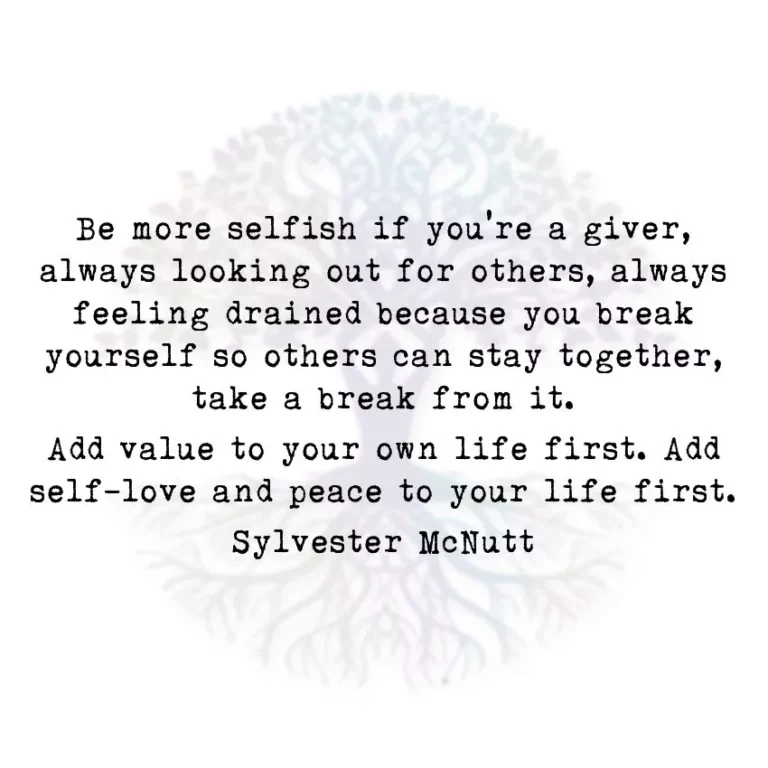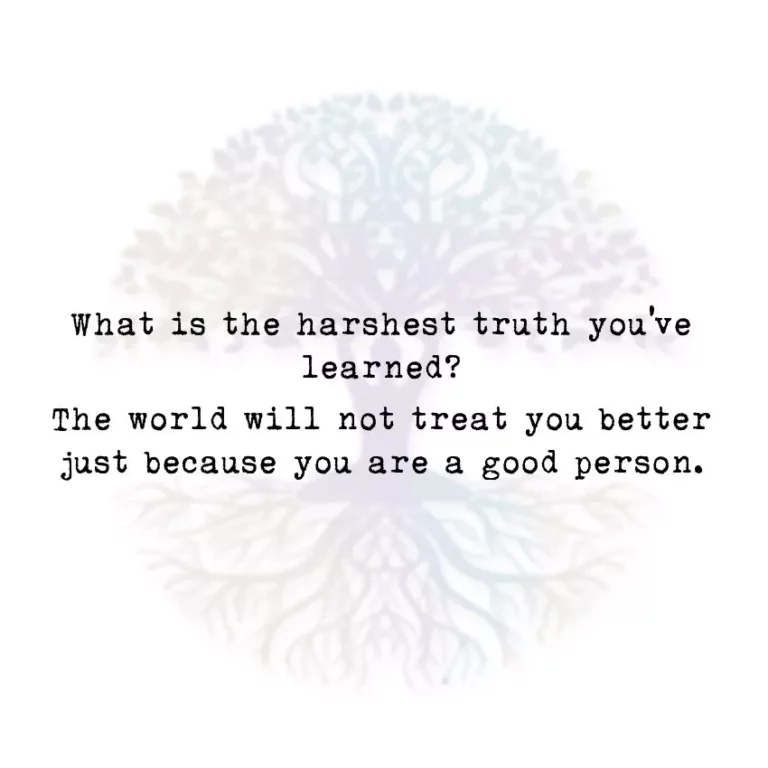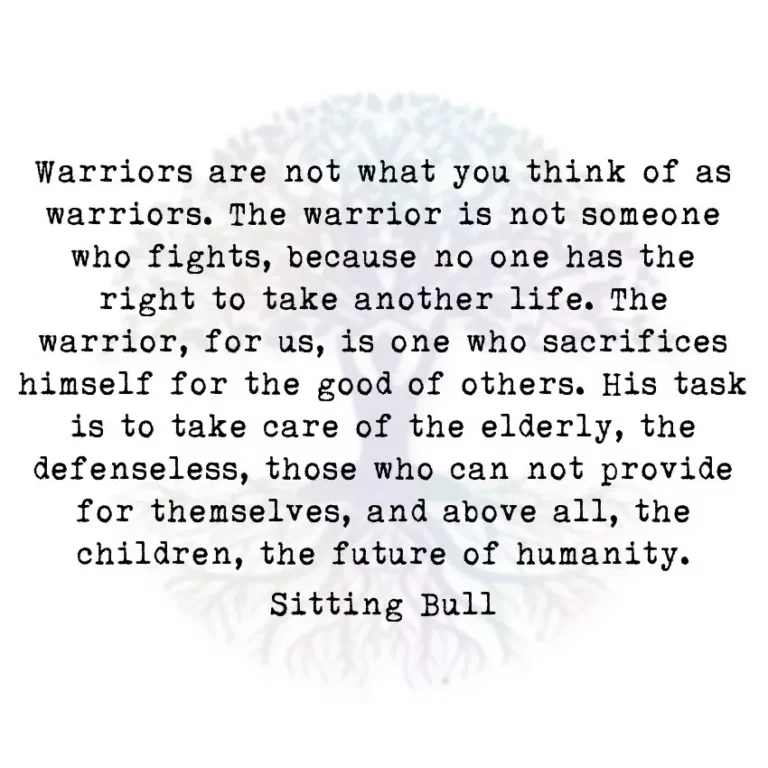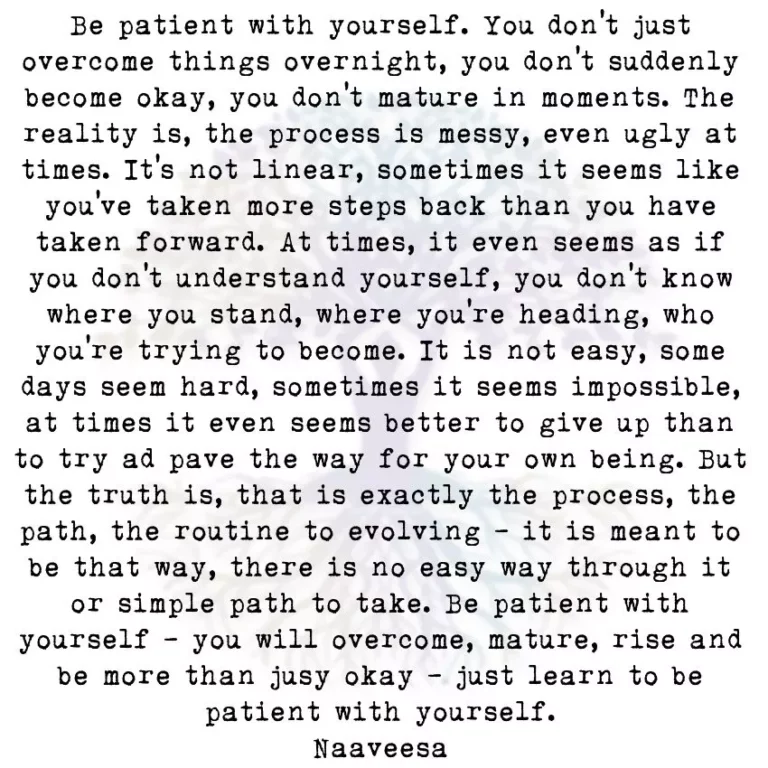Be more selfish if you’re a giver, always looking out for others, always feeling drained because you break yourself so others can stay together, take a break from it. Add value to your own life first. Add self-love and peace to your life first.
~ Sylvester McNutt
Be More Selfish if You’re a Giver
What is the Harshest Truth
What is the harshest truth you’ve learned? The world will not treat you better just because you are a good person.
~ Unknown
Warriors are Not What you Think
Warriors are not what you think of as warriors. The warrior is not someone who fights, because no one has the right to take another life. The warrior, for us, is one who sacrifices himself for the good of others. His task is to take care of the elderly, the defenseless, those who can not provide for themselves, and above all, the children, the future of humanity.
~ Sitting Bull
Are you A Co-Dependent Parent?
“Loving and supporting someone is not the same as loving and supporting someone’s actions if they are harming themselves or others. The first, encourages, and the second, enables. It takes courage to say, “I love you but I cannot accept what you are doing.” But that will give them incentive to change much more than hoping they’ll change ever will. Easier said than done, but better done than only wished for.” ~ Doe Zantamata
In a perfect world. we would be given a handbook prior to becoming a parent. Because we see so many adults with “issues” or who need therapy due to things that happened in their childhood, it’s often difficult to know which parenting style would be the most effective.
Children are born needing to be taken care of, however, when someone with a co-dependency issue responds to this need, we often find a dysfunctional relationship. While some parents need someone to take care of them, which can be defined as co-dependency either way.
The line between having a supportive and healthy relationship with our children vs. a relationship based in “I need you to …. In order for me to be or feel …”, is thin. How can we know the difference?
Anytime we find that we are having some sort of dysfunction or toxicity in our relationship with our children it can almost always be indicative of a deeper issue. Regular life circumstances creating bumps in the road with our children is understandable, but if you have found that over a long span of time the relationship with your child is breeding resentment, guilt, blame, or shame on either end, it may be time to look at yourself and the relationship on a deeper level.
The five main identities a co-dependent parent can take on are:

1) The Protector
“I need to protect you, because protecting you gives my life purpose and importance.”
Being protective of our children is common sense, especially if our children have a disability or mental issue that doesn’t allow them to make sound decisions. However, a parent that insist the child be “disabled” on some level in order to stay in the role of protector is where we see healthy switch into dysfunction.
This particular type of parent can ask themselves the question, “Is my child’s perceived ‘disability’ something that prevents them from taking care of themselves completely? Or is it just something that may make it more difficult for them to?”
If a child’s disability makes it impossible for them to be independent of their parent then some level of dependency on their parent is justified, however, if it simply makes it harder for them to be independent, then stopping them from being on their own may be inhibiting their evolution and growth as a person.
2) The Savior
“I need to save you every time, because being the one who saves the day when you are in trouble makes me feel purposeful, and needed.”
The savior identity in terms of parenting will often have the child who needs to be bailed out of something, whether that be an addiction, a financial situation, legal situation etc.. This type of co-dependent parent feeds off the fact that they are the ones who come in and save the day when they are needed the most.
As a parent, bailing our children out of a troublesome situation that they are not able to navigate on their own is helpful, but becomes a detriment when it happens so often that our child is never able to face their consequences in an integrative way.
Facing the consequences for our actions are helpful because they show us where we are making decisions for our life that are leading us into a path of reality that is not indicative of success (whether spiritually, mentally or physically).
The savior parent often stunts the growth and decision making of their child by stepping in and facing the consequences of an action with their child instead of allowing the child to face them alone, where they learn their lesson on their own.
This parent would benefit from asking themselves, “Is my child facing this consequence alone going to ruin their life or help it and how do I know the difference?”
3) The Image Re-enforcer
“I need you to ‘look’ like the type of person that impresses people who I want to impress.”
Being fearfully attached to our child being a certain way, whether it is look-wise, career-wise, or lifestyle-wise, is never a good idea. This particular type of codependent parent makes their child’s life (or at least the way it looks on the outside) a very integral part of their identity.
This means that the child’s successes or failures (whatever that is defined by in the parent’s eyes) become the parent’s successes or failures also. In this type of situation we see a person go from rooting for someone’s success to owning it is their “badge of honor.”
An identity formed of someone else’s actions or achievements is how a codependent cord forms. By asking yourself, “Is who I am re-enforced by who my child is or does my identity stay the same either way?”, this question tells us if an unhealthy attachment to our child’s image has formed.
4) A Role Reversal

“I need my child to parent me, because I most likely did not have a functional parent to show me how.”
The parent that needs to be parented puts their child in the driver’s seat of their life and the child’s life often before the child is ready. When a child does not have a secure feeling that they are being taken care of adequately, and that they have to take care of their “caretaker” (because they have no other choice) we see a situation where the co-dependent person (the parent) does not have an enabler they simply have an innocent child who has no other choice but to do this in order to survive.
If you feel as though an imbalance of the scales in your child/parent relationship has formed, asking yourself, “Is my child’s parenting of me helping my situation or hurting it?”
5) The Non-existent Parent
“I need you to learn how to fend for yourself so that I can live my life with more freedom.”
This situation, much like the role-reversal parent is where we find a child being put into a situation where they have no other choice but to participate in the parent’s dysfunctional lifestyle.
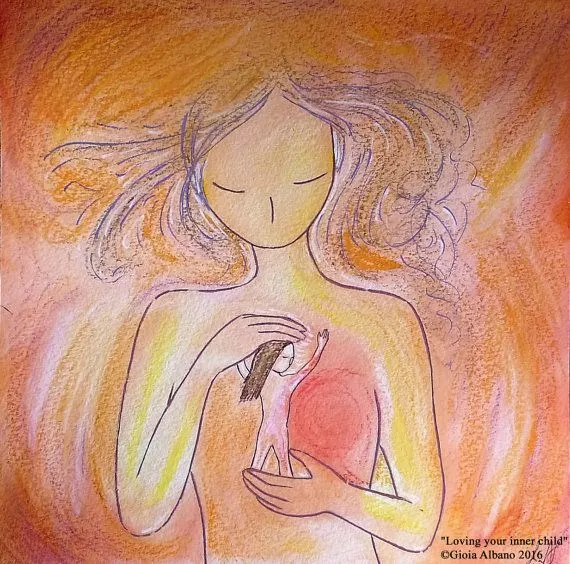
When a parent is non-existent a child switches into survival mode in order to live. In which case, we have a codependent person with no enabler attached. It would be wise to ask yourself, “Is my idea of freedom detriment to my life or an aid in living life in a more fulfilling manner?”, in order to find out if this type of co-dependent cord has formed.
Healing the Wound
Recognizing if we have become a codependent parent will take some internal work and inner child healing in order to rectify. This may include emotional therapy, meditation, or spiritual work.
It is important to realize that there is innocence on both ends. Our child is innocent because they have not yet learned the skills they may need in becoming the person they need to be to overcome the co-dependent way in which we have parented them.
We, as the parent, will often find that as we re-visit our own childhood, we also played the role of the innocent child who was not parented in a way that allowed us to turn into a fully healthy adult and in turn a functioning parent. Forgiveness, self-awareness, and the willingness to look within is the key to turn this type of wounded behavior into a healed one.
Image Sources:
Art by Gioia Albano
Be Patient with Yourself
Be patient with yourself. You don’t just overcome things overnight, you don’t suddenly become okay, you don’t mature in moments. The reality is, the process is messy, even ugly at times. It’s not linear, sometimes it seems like you’ve taken more steps back than you have taken forward. At times, it even seems as if you don’t understand yourself, you don’t know where you stand, where you’re heading, who you’re trying to become. It is not easy, some days seem hard, sometimes it seems impossible, at times it even seems better to give up than to try ad pave the way for your own being. But the truth is, that is exactly the process, the path, the routine to evolving – it is meant to be that way, there is no easy way through it or simple path to take. Be patient with yourself – you will overcome, mature, rise and be more than jusy okay – just learn to be patient with yourself.
~ Naaveesa

